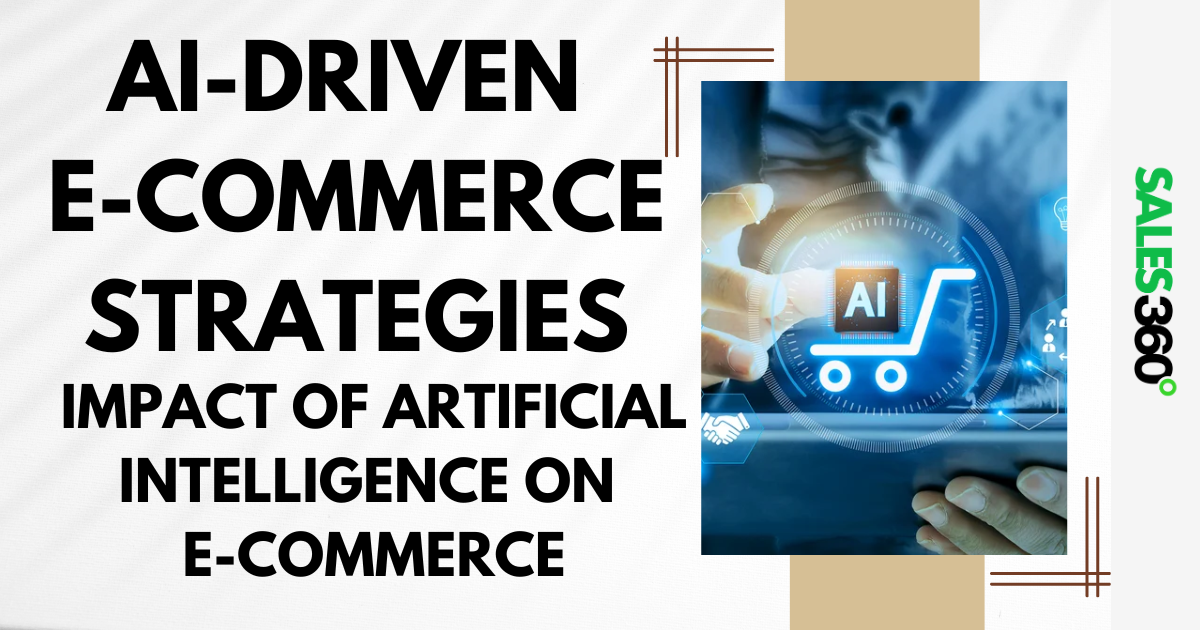
Transforming E-Commerce: The Role of Artificial Intelligence
The e-commerce landscape has evolved at an unprecedented pace in recent years, driven by rapid technological advancements and shifting consumer behaviors. As more consumers turn to online shopping, businesses are compelled to innovate continually to meet expectations for convenience, personalization, and efficiency. In this dynamic environment, the integration of artificial intelligence (AI) has emerged as a transformative force. By harnessing AI technologies, companies can enhance their operations and deliver exceptional customer experiences, positioning themselves for success in an increasingly competitive market.
Understanding AI in E-Commerce
Artificial intelligence in e-commerce refers to the application of AI technologies to improve various aspects of online commerce. This encompasses a wide range of tools and techniques, including machine learning algorithms, natural language processing, and computer vision. According to the research paper by Dr. S. Shanmugapriya and S. Pavithra (Artificial Intelligence in E-commerce: A Literature Review), AI plays a crucial role in revolutionizing the e-commerce industry, offering numerous benefits that enhance online shopping experiences.
The authors emphasize that AI not only helps in personalizing customer interactions but also significantly improves operational efficiency. For instance, AI algorithms analyze customer data—such as browsing history and purchasing patterns—to provide tailored product recommendations, thereby increasing customer engagement and conversion rates. Additionally, AI-powered chatbots and virtual assistants enhance customer service by offering 24/7 support, answering queries, and facilitating transactions, which ultimately leads to improved customer satisfaction.
Furthermore, AI’s capabilities extend to fraud detection and inventory management. By identifying patterns in real-time data, AI can detect and prevent fraudulent activities, bolstering security and fostering customer trust. In inventory management, AI optimizes stock levels based on historical data and market trends, minimizing the risks of stockouts and overstocking. This level of precision not only reduces costs but also enhances overall customer satisfaction.
Benefits of AI in E-Commerce
Enhanced Customer Engagement
AI tools are instrumental in helping businesses understand customer behavior and preferences. By analyzing vast amounts of data—such as browsing patterns, purchase histories, and even social media interactions—AI can uncover insights into what customers want and how they shop. This understanding allows companies to create targeted marketing campaigns, improve website interfaces, and offer products that align closely with consumer desires. For instance, by tracking which items customers frequently view or purchase together, businesses can tailor their offerings and enhance engagement, fostering a deeper connection with their audience.
Personalization and Recommendation Systems
Personalized shopping experiences have become a cornerstone of successful e-commerce strategies. Consumers today expect tailored interactions that cater to their individual preferences. AI excels in this area by utilizing sophisticated algorithms that analyze user data to deliver personalized product recommendations. As noted in the research paper by Dr. S. Shanmugapriya and S. Pavithra, improved recommendation systems not only enhance the shopping experience but also significantly increase conversion rates. When customers receive suggestions that resonate with their interests, they are more likely to make purchases, thereby driving sales and fostering brand loyalty.
Fraud Detection and Security
In the realm of e-commerce, security is paramount. AI plays a critical role in enhancing security measures by identifying suspicious activities and potential fraud. Through real-time analysis of transaction data, AI algorithms can detect anomalies and patterns that may indicate fraudulent behavior, such as unusual purchase frequencies or mismatched IP addresses. This proactive approach allows businesses to mitigate risks before they escalate, protecting both the organization and its customers. Enhanced security measures help build trust, encouraging customers to shop with confidence and ensuring a safer online environment.
Inventory Management and Supply Chain Optimization
AI’s predictive capabilities are particularly beneficial for inventory management and supply chain optimization. By analyzing historical sales data, market trends, and external factors such as seasonal fluctuations, AI can accurately forecast demand for various products. This enables businesses to manage stock levels effectively, reducing the risks of stockouts and overstocking. Moreover, AI can optimize logistics by identifying the most efficient routes for transportation and improving warehouse operations. By streamlining these processes, businesses can reduce costs, enhance efficiency, and ensure that products are available to customers when and where they are needed, ultimately driving satisfaction and loyalty.
Using Artificial Intelligence in E-Commerce Companies
More Targeted Marketing and Advertising
Personalization is no longer a luxury but a necessity in the e-commerce world. Despite its importance, a recent survey reveals that only 15% of retailers have fully implemented personalization across all their channels. AI can bridge this gap by leveraging advances in machine learning to deliver highly personalized marketing messages. By analyzing big data from customer purchase histories and interactions, AI enables businesses to craft messages that resonate deeply with individual users. This level of customization helps brands stand out in a crowded marketplace and fosters more meaningful one-to-one conversations with customers, ultimately driving higher engagement and conversions.
Increased Customer Retention
Effective personalization not only attracts customers but also helps in retaining them. Research by McKinsey shows that omnichannel personalization strategies can lead to a 10-15% increase in revenue and retention. The key to these strategies lies in building comprehensive data and insights about customers. AI tools enhance this process by analyzing vast amounts of customer data to deliver targeted marketing messages that keep customers engaged. By continuously offering relevant content and recommendations, businesses can strengthen customer loyalty and encourage repeat purchases, making personalization a critical component of a successful retention strategy.
Seamless Automation
Automation is pivotal in reducing manual effort and increasing efficiency in e-commerce operations. AI excels in automating repetitive tasks, allowing businesses to focus on more strategic activities. From scheduling emails and automating marketing campaigns to managing product recommendations and loyalty discounts, AI can handle numerous tasks with minimal human intervention. Emerging technologies like robotics and machine learning further enhance automation, ensuring that online stores run smoothly and efficiently. By integrating AI into automation processes, companies can streamline operations, reduce errors, and enhance overall productivity.
Efficient Sales Process
AI can transform the sales process by improving efficiency and effectiveness. One of the primary ways AI contributes is through data-driven insights about customer behavior. By analyzing this data, AI can automate follow-up actions for abandoned carts, a common issue in e-commerce. Additionally, AI-powered chatbots can assist customers with simple inquiries and guide them through the sales funnel. These chatbots provide immediate responses and support, reducing the need for human intervention and ensuring that customers receive timely assistance. This streamlined approach helps move customers through the purchasing process more smoothly, leading to higher conversion rates and a better overall shopping experience.
By leveraging AI, e-commerce companies can enhance their marketing efforts, boost customer retention, automate routine tasks, and create a more efficient sales process. These advancements not only improve operational efficiency but also provide a more personalized and engaging customer experience.+
The Impact of AI on Customer Satisfaction
Artificial Intelligence (AI) has a profound impact on customer satisfaction in e-commerce by enhancing various aspects of the customer experience. Here’s how AI contributes to higher levels of satisfaction, based on insights from the research paper by Dr. S. Shanmugapriya and S. Pavithra:
1. Personalized Experiences
AI enables a high degree of personalization by analyzing customer data, such as browsing history, purchase behavior, and preferences. This allows e-commerce businesses to tailor their interactions and offerings to individual customers. For example, personalized product recommendations and targeted marketing messages are generated based on a customer’s past interactions and preferences. According to the paper, this level of customization not only makes the shopping experience more relevant and enjoyable but also increases the likelihood of repeat purchases, contributing to higher customer satisfaction.
2. Enhanced Customer Support
AI-powered tools like chatbots and virtual assistants provide immediate and efficient customer support. These AI systems can handle a wide range of queries, from product information to order status, with minimal wait times. The paper highlights that this 24/7 support capability improves customer satisfaction by ensuring that help is readily available whenever it is needed. Fast and accurate responses to customer inquiries enhance the overall shopping experience and build trust in the brand.
3. Efficient Problem Resolution
AI can quickly identify and address issues such as order discrepancies, returns, and complaints. By automating and streamlining these processes, AI reduces the time and effort required to resolve customer problems. The research paper emphasizes that efficient problem resolution not only prevents customer frustration but also reinforces a positive perception of the brand. When customers feel that their concerns are addressed promptly and effectively, their overall satisfaction with the e-commerce experience increases.
4. Anticipating Customer Needs
AI’s predictive capabilities allow businesses to anticipate customer needs and preferences before they even arise. For example, AI can forecast demand for certain products and suggest them to customers based on their previous behaviors and trends. This proactive approach ensures that customers are presented with products and services that align with their current interests, further enhancing their satisfaction.
5. Improved Convenience and Efficiency
AI enhances convenience through features such as automated checkout processes, personalized shopping experiences, and streamlined customer interactions. The paper notes that these efficiencies reduce the time customers spend navigating the e-commerce site and completing transactions. By making the shopping experience smoother and more intuitive, AI contributes to a higher level of customer satisfaction.
AI significantly boosts customer satisfaction by delivering personalized experiences, providing efficient support, resolving issues swiftly, anticipating needs, and enhancing overall convenience. The insights from the research paper underscore the importance of AI in creating a more engaging and satisfying e-commerce environment, ultimately leading to increased customer loyalty and positive brand perception.
AI Use Cases in E-Commerce
Artificial Intelligence (AI) has a broad range of applications in e-commerce, often working behind the scenes to enhance various aspects of the shopping experience. Here are six key AI use cases that are transforming the e-commerce landscape:
1. Personalized Product Recommendations
AI has revolutionized how e-commerce sites recommend products to customers. By leveraging machine learning algorithms, retailers can analyze customer data such as past purchase behavior and browsing history to offer personalized product suggestions. For instance, when you receive recommendations for items based on your previous purchases, AI is at work behind the scenes, processing your shopping data to predict what products you might be interested in next. This personalized approach not only enhances the shopping experience but also drives sales by presenting customers with relevant products. Over time, as machine learning algorithms improve, they will require less manual intervention, making the process more efficient and accurate.
2. Pricing Optimization
Dynamic pricing is a powerful AI application that adjusts product prices based on real-time supply and demand data. AI tools analyze various factors such as market trends, competitor pricing, and inventory levels to determine optimal pricing strategies. This enables e-commerce businesses to offer discounts or adjust prices dynamically, maximizing revenue and ensuring competitiveness. AI can calculate the minimum discount needed to stimulate sales without sacrificing profitability, making pricing strategies more precise and responsive to market conditions.
3. Enhanced Customer Service
AI-driven virtual assistants and chatbots significantly enhance customer service by providing immediate support. These AI tools can handle a range of tasks, from facilitating simple transactions to answering common questions, which allows human agents to focus on more complex issues. Available 24/7, AI chatbots ensure that customer queries are addressed promptly, improving overall satisfaction and reducing wait times. By automating routine customer service tasks, businesses can offer more efficient and scalable support solutions.
4. Customer Segmentation
AI excels at analyzing vast amounts of customer data to identify distinct customer segments and emerging trends. With advanced analytics, AI systems can quickly process complex data sets to uncover insights about customer preferences and behaviors. According to Accenture, AI systems continuously optimize their performance as more data becomes available, enabling marketers to refine their strategies and achieve greater precision in targeting. This improved understanding of customer segments allows for more effective marketing campaigns and personalized engagement.
5. Smart Logistics
In logistics, AI’s predictive capabilities are invaluable. Machine learning algorithms can forecast transit times, demand levels, and potential shipment delays by analyzing real-time data from sensors, RFID tags, and other sources. This “smart logistics” approach enhances inventory management and demand forecasting, allowing e-commerce businesses to optimize their supply chain operations. As AI systems learn from historical data and real-time information, they become increasingly accurate in predicting logistical needs, leading to more efficient and responsive supply chain management.
6. Sales and Demand Forecasting
AI is instrumental in forecasting sales and demand, particularly in an ever-changing market environment. By analyzing both real-time and historical data, AI helps businesses anticipate shifts in consumer demand and adjust their inventory accordingly. McKinsey highlights the importance of real-time customer analytics for monitoring and reacting to changes in consumer behavior. This capability enables e-commerce businesses to optimize pricing, plan marketing strategies, and manage inventory more effectively, ensuring that they can meet customer needs and capitalize on emerging trends.
AI applications in e-commerce – from personalized recommendations and dynamic pricing to enhanced customer service and smart logistics – are driving efficiency, improving customer experiences, and enabling more informed decision-making. As AI technology continues to advance, its role in shaping the future of e-commerce will only become more significant.
Conclusion
Artificial Intelligence (AI) is profoundly transforming the e-commerce industry, driving advancements that enhance customer experiences, optimize operations, and boost overall business performance. From personalized product recommendations and dynamic pricing to enhanced customer service and smart logistics, AI technologies are reshaping how e-commerce businesses interact with customers and manage their operations. The ability to analyze vast amounts of data, predict trends, and automate processes is revolutionizing the industry, making e-commerce more efficient and responsive to consumer needs.
As AI continues to evolve, it presents exciting opportunities for growth and innovation in the e-commerce landscape. Businesses that leverage AI technologies are not only able to deliver more personalized and engaging experiences but also optimize their operations for greater efficiency and profitability. For those looking to stay competitive and thrive in the ever-changing e-commerce environment, exploring and adopting AI tools is essential. Embracing these technologies will empower businesses to better understand their customers, streamline their operations, and ultimately achieve sustained growth and success.




